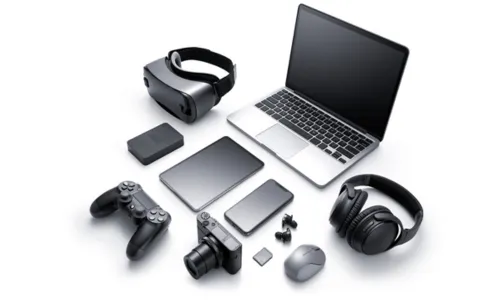By evolving CNC machining for medical devices has gained greater control over how precisely, consistently, and safely its products are made. High-quality, tolerant, and repeatable medical equipment is achieved through CNC (Computer Numerical Control) machining in the medical industry. CNC machining stands out as necessary in an industry where small amounts matter.
A big advantage of CNC machining here is managing difficult shapes with strong standardization. To be approved for use, medical devices must be constructed with both accuracy and strict attention to health rules. By using CNC machines, manufacturers can fulfill these demands because the whole process is controlled by computers and does not rely on people. Besides, working with different biocompatible metals and plastics such as titanium, stainless steel, and medical-grade plastics, CNC machining makes it suitable for both making samples and for general production.
Because medical-grade components are used in hard situations, CNC Machining for Medical Devices is very useful for them. All these products, both major and minor, are built with durability, functionality, and reliability in mind. Combining 5-axis machining and automated tool changers allows the medical industry to produce accurate and detailed parts easily.
CNC Machining for Medical Devices for the Healthcare Industry
Improvements in mildly invasive medical treatment and the desire for tiny instruments have both contributed to the higher demand for precise medical machining. Thanks to precision machining, parts for medical applications often meet tolerances within microns, making sure they work well with each other and in the human body.
Because CNC machining for medical devices is so small, they must be assembled with great care and attention. Since even small errors can cause a surgical application to fail, repeatability is a major strength of advance CNC machining. Since CNC machines keep going, they are ideal for making lots of similar things without decreasing their quality.
Using digital CAD/CAM software helps engineers try out and improve every part of the manufacturing process, even before the real production environment. Thanks to this approach, organizations work with fewer errors, save more time, and are better prepared for changes in the fast-changing world of medicine.
Custom Machined Medical Parts: Tailored for Patient Needs
Everyone is different, and their medical situation may not be the same as someone else’s. As a result, custom-machined medical parts are becoming more important. Using CNC machining, technicians can create implants, prosthetics, and CNC machining for medical devices to fit anyone’s unique body structure. 3D scanning and CAD modeling make it fast and precise to go from design to a product.
This feature allows for the making of prototypes useful for clinical trials or similar uses. Simulating manufacturing processes using 3D printing allows engineers and designers to experiment with many options instantaneously and cheaply. CNC machining makes it possible to innovate at the individual level, whether it’s for someone needing a hip implant or a surgeon using a unique instrument.
Thanks to CNC medical manufacturing, customized spare parts still achieve the same rigorous quality as those made in larger batches. It is necessary to guarantee that the medical device will function safely and properly throughout its existence.
Materials Used in CNC Machining for Medical Applications
The right material is very important in CNC machining for medical devices. Many project materials are made from:
- Because it is so strong, lightweight, and biocompatible, titanium is often chosen for implants and surgical tools.
- Stainless Steel: Because it is strong and won’t rust easily, it is often found in both tools and equipment.
- PEEK can be safely used for orthopedic implants and in making dental prosthetics.
- Aluminum is chosen for parts of the device that are not inside the body, as it is light and resists corrosion.
Every one of these materials has its own machining demands, and CNC systems are flexible enough to handle them without sacrificing quality.
Advantages of CNC Machining in the Medical Field
Using CNC machining for medical devices in several ways.
- Doing the same thing well each time to a tiny level of accuracy.
- Flexible: You can make both low and high volumes with these tools.
- Flexible with material use: OAVW can weld both metals, plastics, and composites made for medical devices.
- The production of precision parts in cleanrooms allows parts to meet sterilization requirements.
- CNC medical manufacturing services are verifiable against both FDA and ISO guidelines.
That’s why CNC machining is crucial for medical devices today; it ensures products have both high quality and reliable performance.
Conclusion
Since healthcare is very tightly regulated, using CNC Machining for medical devices supports patient safety and progress in medical technology. Being precise, adaptable, and able to make medical-grade CNC machining parts and custom medical pieces means it is important for the medical field. As technology for medical tools advances, it will broaden the limits of treatment, diagnostics, and caring for patients.
If a task involves precision or durability, CNC machining is important in medical technology for delivering results when lives are on the line.
FAQs
Q1: Why is CNC machining important for medical devices?
Ensuring these components are manufactured with CNC means they are precise, similar every time, and can be processed from safe, biocompatible materials.
Q2: What types of medical devices use CNC-machined parts?
CNC-machined components are found in a wide range of medical tools such as surgical instruments, implants, diagnostic devices, prosthetics, and dental tools.
Q3: Can CNC machining produce custom medical components?
Machining new medical components to exactly match what each patient requires is perfect for this technology.
Q4: What materials are commonly used in CNC medical manufacturing?
Medical devices made from titanium, stainless steel, PEEK, and aluminum are appreciated for their suitability in the body and toughness
.Q5: How does CNC machining meet regulatory standards?
CNC processes fit into quality assurance systems and are recognized as meeting medical standard guidelines in the United States and globally.








